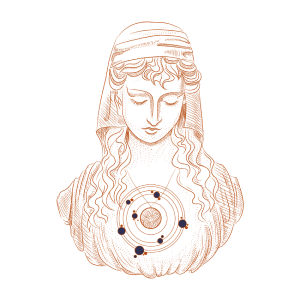You know what’s the least cool thing on Earth when you’re a teenager in Poland? Traditional folk music, that’s what. Only village grandmas would perform it when I was a kid, they sang in regional dialect which sounded weird and archaic, and the lyrics never made any sense. A rose grew in my garden, tell me dear Marysia if you’ll marry me. How can I tell you this, how can I know if my mom will agree. Totally relatable for a kid who’s not going to marry anyone for at least the next six hundred years, and is certainly not going to ask her mom for permission if she finally decides to do so.
But the worst thing of all was “Marysia”. In Polish and other Eastern European languages every name comes in several different forms. There’s an official version for adults you don’t know very well, there’s a “naughty kid” version which in my days was the only acceptable form to be used among teenagers, and there’s… Marysia. This is a form of my name Maria used either when speaking to little children or to someone you’d like to be tender with. When you’re a teenage punk rebel it almost sounds like an insult. Somehow in the old times people weren’t as creative in naming kids as they are now, so literally every traditional Polish song had a Marysia or Kasieńka in it. Being the only Marysia in class that had a lot of such songs assigned in the school curriculum was a great opportunity for all other kids to make fun of you.
It took me many years to find traditional music pleasant to listen to, or even acceptable.
The first band that did this for me was Arkona, who sneakily smuggled traditional folk influences into their heavy metal songs. They sang in Russian, so even if the lyrics were still ridiculous and archaic it didn’t bother me at all cause I only understood a few words. I fell in love with Arkona because of their incredible lead singer, a five foot blonde girl with the most Earth-shattering voice. She could start with a touching, lyric melody and change it into a demonic growl a few seconds later. I hadn’t thought I would find female growl attractive, but Masha carries such power in hers it’s fucking unbelievable.
This ain’t your ordinary village grandma.
***
With time I got to enjoy other traditional Eastern European songs, even if they didn’t come together with growl and heavy guitar riffs. I learned to appreciate the ancient wisdom in these ridiculously archaic lyrics that puts my remarkably modern life in perspective. Yes, I’m an independent, self-sufficient woman who can choose whether or whom to marry, but this simply wasn’t the case for my female ancestors. Life in a village used to be incredibly hard, and making a living independently wasn’t an option for anyone, not only women. No one would think about independence when they struggled to survive. Even my own grandma got married at the age of eighteen to a 30-year-old she just met, as she explained, mostly to escape from her abusive stepfather.
But it’s not just perspective that traditional music gives
It also serves as a guiding anchor through different stages of life. This is not a kind of music you would create as a masterpiece to be performed on stage. These were ordinary songs sung by ordinary people as they went through different events in their lives. There were at least a few for every occasion. Birth and death, love and heartbreak, work and rest, joy and sorrow, marriage and pesky in-laws, sowing and reaping, there was a song that could help you make sense of any of these experiences, and process the emotions that arise with it.
Music creates a kind of emotional resonance that words alone will never do. Singing together synchronizes minds and souls in a way that is difficult to describe, as I learned on traditional music workshops. If you’re going through childbirth, death, marriage, or breakup, everyone singing with you validates your experience, shows you that they understand what you’re going trough, and that what is happening is a normal part of life. It integrates your emotions into the whole community, and helps you heal the challenging ones.
I have my own wedding coming soon
And I wanted a ceremony that won’t be just a government official talking about civil rights and obligations. Even if they prepared the most touching speech, it would still be processed through the rational parts of the brain first. I’d rather go directly into the hearts and souls.
So though the irony is not lost on me, I’m going to bring some of the ancient wedding ritual songs I used to despise so much as a kid to guide us and all of our guests through the most important moment of our lives so far. I even put a “Marysia” on our wedding invitation cards.

2 responses to “Things you can learn from traditional folk music”
[…] My fiancé, for example, hates every kind of music that has any words in it (except, of course, the beautiful songs in various languages I sing at home all of the time). Making him sing German songs so that he can learn some German […]
Really interesting, thanks for writing!